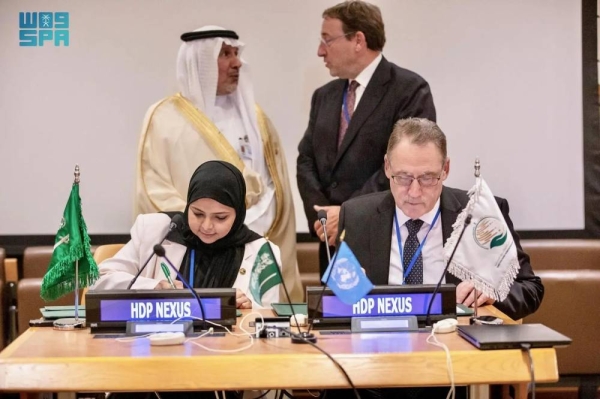The King Salman Humanitarian Aid and Relief Center (KSrelief) recently signed a cooperation agreement with the United Nations Development Program (UNDP) to empower Yemeni women in renewable energy projects in the governorates of Hadhramaut and Lahj. This agreement, valued at $2.255 million, aims to benefit 21,375 women by establishing 375 small projects focused on producing and marketing solar-powered household appliances such as lanterns, stoves, and traditional ovens. In addition to providing vocational training on the use of solar energy and life and business skills, the project will also offer alternative energy sources to needy families and displaced persons in Yemen.
The agreement was signed by Dr. Hana Omar, Director of the Partnerships and International Relations Department at KSrelief, and Abdullah Al-Dardari, Assistant Secretary-General of the UNDP and Director of the Regional Bureau for Arab States. The signing took place in the presence of Dr. Abdullah Al Rabeeah, General Supervisor of KSrelief, and Achim Steiner, Director of the UNDP, during the United Nations General Assembly session in New York. This initiative is part of Saudi Arabia’s efforts, represented by KSrelief, to empower women in Yemen, provide income-generating opportunities, and enhance their role in society.
As part of this project, women in Yemen will have the opportunity to establish their own businesses by producing and selling solar-powered household appliances. Through vocational training and skills development, these women will be equipped with the knowledge and expertise needed to succeed in the renewable energy sector. The project also aims to provide essential lighting and cooking appliances to families in need, ultimately improving their quality of life and reducing their dependence on traditional energy sources.
By investing in renewable energy projects and empowering women in Yemen, the agreement between KSrelief and the UNDP seeks to address critical issues such as gender inequality, poverty, and the lack of access to sustainable energy sources. Through collaboration and partnership, both organizations are working towards creating a more inclusive and sustainable future for the people of Yemen. This initiative not only benefits women in Yemen but also contributes to the overall development and stability of the country.
The partnership between KSrelief and the UNDP demonstrates the commitment of both organizations to supporting women empowerment and sustainable development in Yemen. By focusing on renewable energy projects and vocational training for women, this initiative aims to create long-term economic opportunities and improve the well-being of families in the region. As the project progresses, it is expected to have a significant impact on the lives of thousands of women in Yemen, enabling them to take control of their economic futures and contribute to the growth and development of their communities.
In conclusion, the cooperation agreement between KSrelief and the UNDP to empower Yemeni women in renewable energy projects represents a significant step towards promoting gender equality, economic empowerment, and sustainable development in Yemen. By providing women with the resources and support they need to succeed in the renewable energy sector, this initiative has the potential to transform communities and improve the quality of life for thousands of families in the region. As Saudi Arabia continues to invest in empowering women and promoting renewable energy, it is setting an example for other countries to follow in the pursuit of a more inclusive and sustainable future for all.











